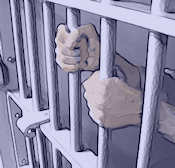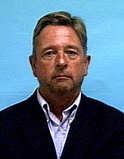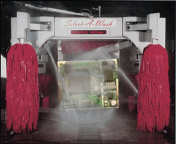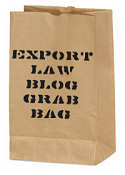 The title of this post is not really meant to be hyperbole. The advice given in Crain’s Chicago Business in an article titled “Liars and terrorists and drug traffickers, oh my!” is without doubt the single worst piece of advice on export law that I’ve ever seen dispensed by anyone:
The title of this post is not really meant to be hyperbole. The advice given in Crain’s Chicago Business in an article titled “Liars and terrorists and drug traffickers, oh my!” is without doubt the single worst piece of advice on export law that I’ve ever seen dispensed by anyone:
Further complicating matters, export control laws are regularly updated, and it’s up to business owners to stay current. That isn’t always easy. But a good place to start, experts say, is with … a freight forwarder who is regularly dealing with shipping and tariff restrictions.
To begin with, as regular readers know, the defense of “my freight forwarder did it” is the export law equivalent of “the dog ate my homework.” It’s not going to keep you from doing detention. Worse, many freight forwarders have no working knowledge of export laws and little interest in complying because DDTC and BIS usually whack the exporter not the freight forwarder in these matters.
On top of everything else, a lawyer was misquoted by the reporter.
“It’s a labor-intensive process,” says … [the] managing partner of … [a] law firm specializing in international trade law. “At the very least, you should have your freight forwarder check compliance, so if they identify a problem, they can stop the order before it ships.”
I know attorneys at the law firm in question. They are all smart people. They have people just as knowledgeable about export law as anyone else in the export bar. I am absolutely certain that the partner in question was misquoted or the statement was taken completely out of context by the reporter. (11/30 UPDATE: The attorney in question has contacted me to confirm that the quotation was inaccurate and that the reporter, although she promised to allow the attorney to review the article in question before it went to print, did not do so. Again, I absolutely believe that the attorney was misquoted and never would have said what the reporter claimed.)
Here’s some better advice: ask a Ouija Board your export compliance questions before submitting them to your freight forwarder.
Happy Thanksgiving everyone! Export Law Blog will be back to a regular schedule on Monday.
UPDATE (Early Thanksgiving Morning): I should add one qualification, based on a few comments this post has received from esteemed readers who work for freight forwarders. There is, of course, an irrebuttable presumption that any freight forwarder who is a reader of this blog would be an excellent source of export compliance information. 🙂

 Posted by
Posted by  Category:
Category: 

 The title of this post is not really meant to be hyperbole. The advice given in Crain’s Chicago Business in an
The title of this post is not really meant to be hyperbole. The advice given in Crain’s Chicago Business in an 
 Minnesota-based
Minnesota-based  No big news today, so it’s time for another Export Law Blog grab bag:
No big news today, so it’s time for another Export Law Blog grab bag:

